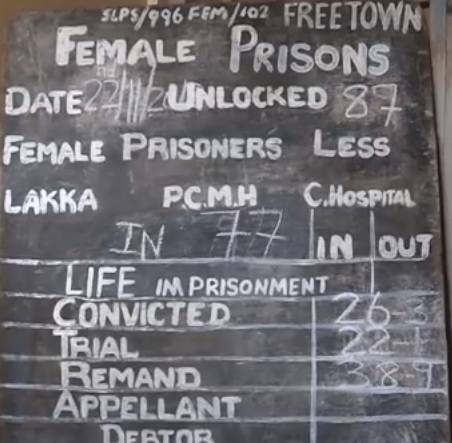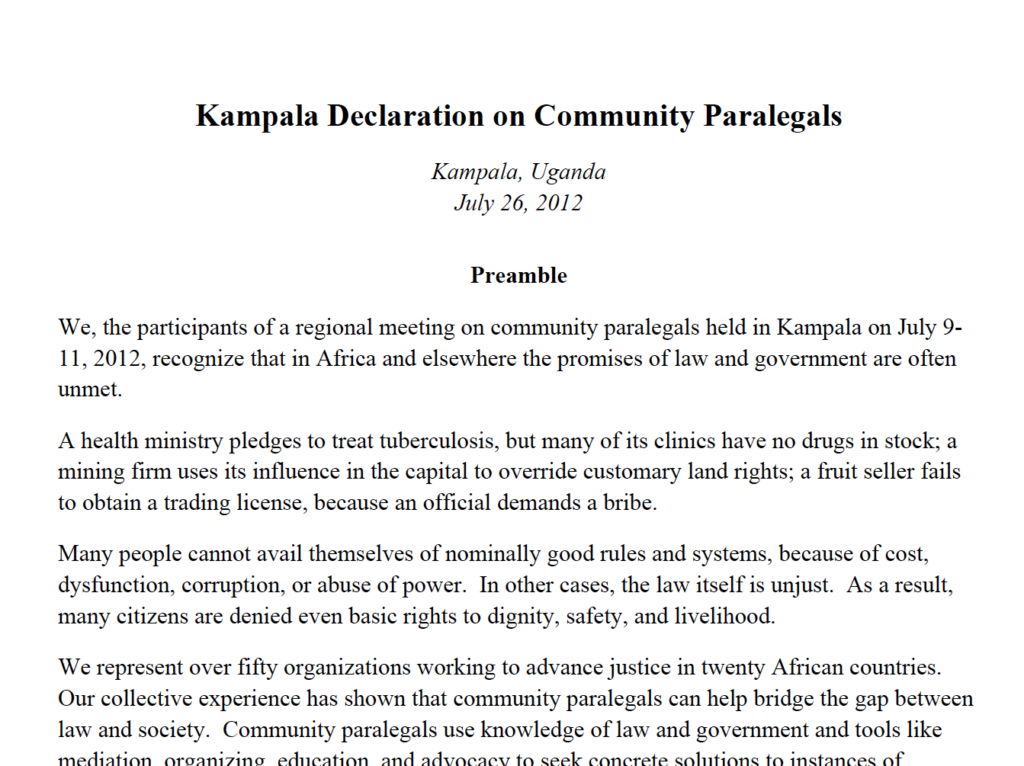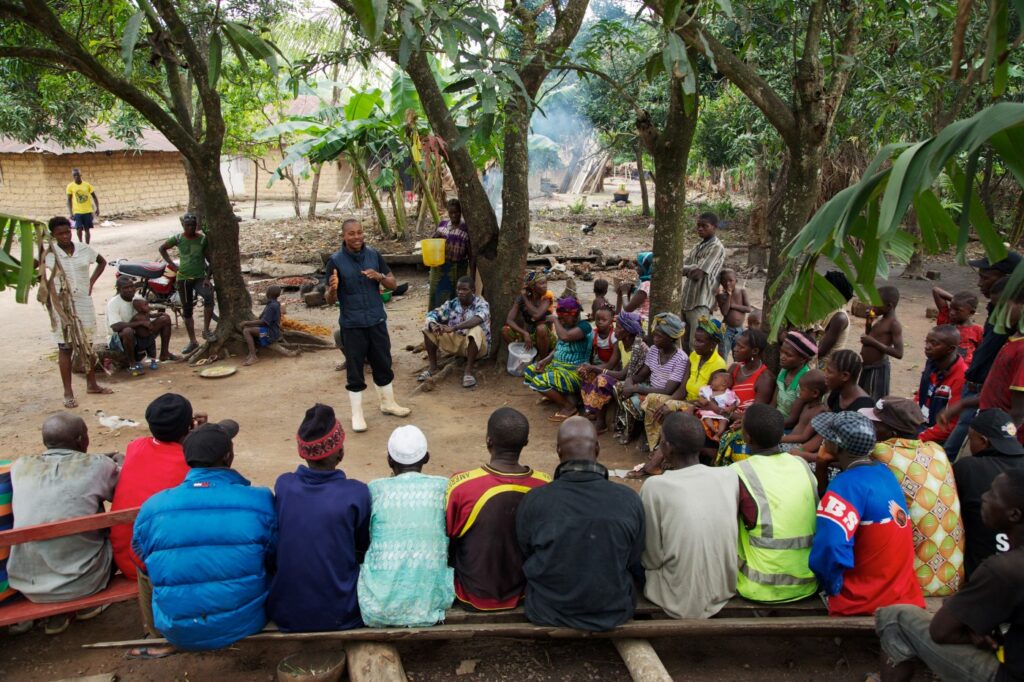Community paralegals provide a bridge between the law and real life. Depending on context, they may be called legal empowerment advocates, grassroots legal advocates, barefoot lawyers, community mobilizers, or even health advocates or environmental coordinators.
Whatever they are called, they share a common characteristic: a focus on legal empowerment. Instead of treating their clients as victims requiring an expert service—“I will solve this problem for you”— community paralegals’ message is “we will solve this together and grow stronger in the process.”
Community paralegals are different from conventional paralegals—their primary role is not to assist lawyers, but rather to work directly with the communities they serve. They are trained in basic law and in skills like mediation, organizing, education, and advocacy. They form a dynamic, creative frontline that can engage formal and traditional institutions alike.
But just as primary health workers are connected to doctors and hospitals, community paralegals should be connected to lawyers and the possibility of litigation or high-level advocacy if frontline methods fail.
Community paralegal programs are diverse. Members of our Grassroots Justice Network tackle a wide range of justice challenges, from women’s empowerment to prisoners’ rights. Namati’s community paralegals work on land, health, citizenship, and environmental justice.
How Community Paralegals Work
Community paralegals use several strategies to advance justice. These include:
- Public education to increase awareness of the law
- Advising clients on legal process, and options for pursuing remedies
- Assisting clients to navigate authorities and institutions
- Mediating disputes
- Organizing collective action
- Advocacy
- Fact-finding, investigations, and monitoring
In exceptionally difficult or serious cases, a paralegal can seek the assistance of a lawyer, who in turn may resort to litigation or higher-level advocacy. Often, the credible threat of litigation can lead more powerful parties to participate in mediation or negotiation.
Advantages of This Approach
At their best, community paralegals can:
- Promote empowerment by fostering legal awareness and agency of clients.
- Provide tailored solutions to legal problems due to their creative strategies, range of skills and tools, and deep knowledge of local context.
- Be more cost-effective and accessible than most lawyers.
- Find solutions not only for individuals but also for entire communities.
- Engage a wide range of institutions, including administrative agencies and customary authorities.
- Prioritize a fair resolution rather than taking sides with only one party to a conflict
Learn more about community paralegals:
- Download the book Community Paralegals and the Pursuit of Justice, available through open access from Cambridge University Press (2018).
- Check out the Kampala Declaration on Community Paralegals (endorsed by 60 groups
across Africa and cited in legislative debate regarding legal aid in several countries). - Use this how-to resource guide on starting and running a community paralegal program.
- Read this analysis of all evidence we could find on the impact of legal empowerment efforts.
- Ask questions and compare notes with other practitioners at the Grassroots Justice Network.
Featured Resources
What is a Community Paralegal?
This is a 4-page informational resource on the basics of community paralegals, including an introductory description of what community paralegals are, how they work, and advantages of the community paralegal approach. This is followed by 3 brief case studies of community paralegals at work in Sierra Leone, Kenya and Indonesia.
Kampala Declaration on Community Paralegals
The Kampala Declaration on Community Paralegals urges governments to strengthen access to justice and accountability across the continent by embracing the potential of community paralegals. From July 9-11, 2012, more than fifty organizations from twenty African countries met in Kampala, Uganda, where they debated and adopted the declaration. It calls on ...
A Paralegal Memoir
Namati’s Daniel Sesay has written a memoir of his decade as a community-based paralegal in Sierra Leone. Using case studies and stories he explains clearly the multiple, flexible and innovative ways in which grassroots advocates can bring justice to places and people that lawyers and the law don’t ...
How to Develop a Community Paralegal Program
Community paralegals are grassroots advocates who use their knowledge of the law to seek concrete solutions to instances of injustice. Based on the needs of a given case, they may employ such tools as mediation, community organizing, education, and advocacy before formal or customary authorities. Paralegals are often ...








